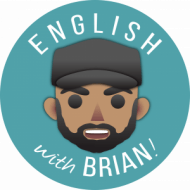Do you make this pronunciation mistake? Keep reading to find out!
- Listen to learn how to improve your pronunciation.
- First, try listening without reading the transcript. After that, listen again to check for any words you might’ve missed.
- You’ll also find a quiz at the end!
Transcript:
Hi guys, today I’ll be sharing with you one rule that will take your pronunciation to the next level. Stay tuned.
English is not a phonetic language—this makes getting your pronunciation right quite the challenge!
A Common Pronunciation Mistake
This pronunciation rule is something that I wasn’t even aware of. As a native speaker, I never really considered it and even during my training to become a teacher I never heard anyone mention it nor did I see it in any of the material I worked with. It wasn’t until I noticed this mistake happening over and over with students that I decided to look into it so that I could correct these mistakes more effectively and provide my students with a clearer explanation.
So what is this super common mistake? Past tense verbs. Or more specifically, verbs in the past simple or past participle or adjective forms. Let’s look at these past simple verbs: “danced”, “called”, or “started”. Each of these words end with the letters E and D, yet they all end with a different sound. We don’t say “dancED” we say “danST”. We don’t say “call-ID” but rather “calleD”. And finally, we don’t say “needIT”, we must say “needED”.
These words that end in an ED can end in one of three different sounds: a /t/ sound like in danced, a /d/ sound like in called, or an /ɪd/ sound like in started. Listen to those end sounds again: danced, called, started.
How to Correctly Pronounce Words Ending in -ED
So how do you know which of the three sounds to use? Well, here’s where things get a little more difficult.
/t/
If the final sound of the verb is voiceless, it will end in a /t/ sound. What does voiceless mean? It means that your vocal cords don’t move, and your throat doesn’t vibrate when you make that sound. Let’s try this together. Put your hand on your throat. Now repeat these words: COOK…MISS…SHOCK… Did you feel your throat vibrate? You shouldn’t have. All of these are unvoiced and will end in a /t/ sound. So, cook becomes cooked, miss becomes missed, and shock becomes shocked.
/d/
Now let’s move on to voiced sounds. Verbs ending a voiced sound will end in a /d/ sound. Put your hand on your throat again. Repeat after me: LOVE…NAME…CONFUSE… Did you feel the vibration on the last sound? Hopefully, you did. Here with these voiced sounds, love becomes loved, name becomes named, and confuse becomes confused.
/ɪd/
Finally, we have the /ɪd/ ending. This one is the easiest because the rule is much more simple. If the verb ends in a /t/ sound like “wait” or ends in a /d/ sound like “end“, the past tense form will end with the /ɪd/ sound. So, wait will become waited and end will become ended.
Example Chart with IPA
/t/ ending /d/ ending /ɪd/ ending verb is voiceless verb is voiced verb ends in /t/ or /d/ example words example words example words miss [mɪs] > missed [mɪst] use [juz] > used [juzd] need [nid] > needed [ˈnidɪd] wash [wɑʃ] > washed [wɑʃt] buzz [bʌz] > buzzed [bʌzd] create [kriˈeɪt] > created [kriˈeɪtɪd] kiss [kɪs] > kissed [kɪst] love [lʌv] > loved [lʌvd] want [wɑnt] > wanted [ˈwɔntɪd] *IPA is the International Phonetic Alphabet, you can learn more here.Tip: A voiced ending sound will vibrate like a buzzing bee…zzzz!
I really do recommend that you practice these three endings and become comfortable recognizing the difference in pronunciation. This may seem like a small problem or something not worth focusing on…but trust me, as a native speaker when I hear students make these mistakes it is quite noticeable and can make your speech sound very unnatural. The next time you see the letters E and D, stop for a moment, and consider your pronunciation. I hope that was helpful. I hope you learned something new. See you next time!















